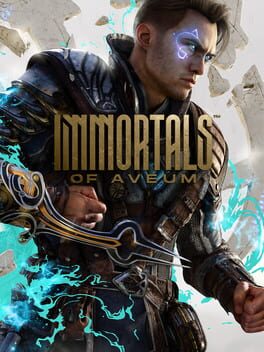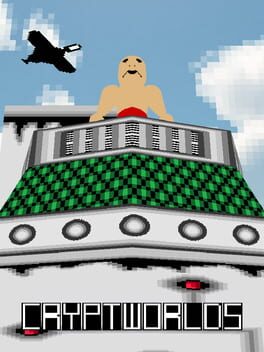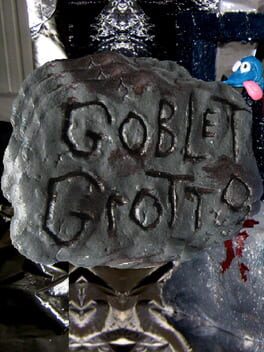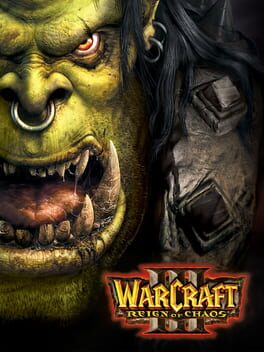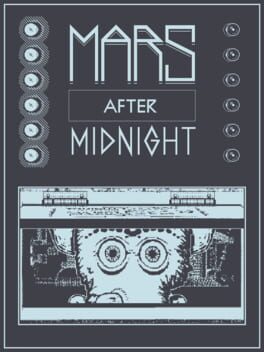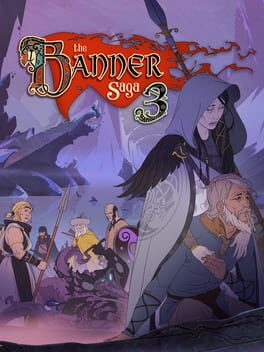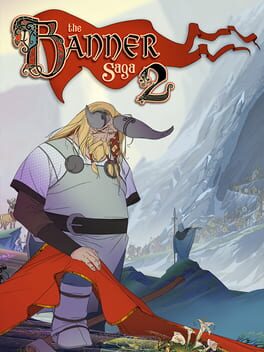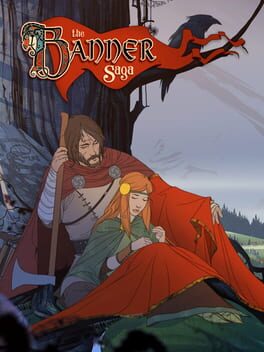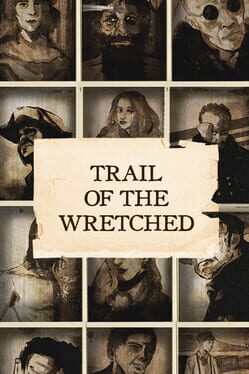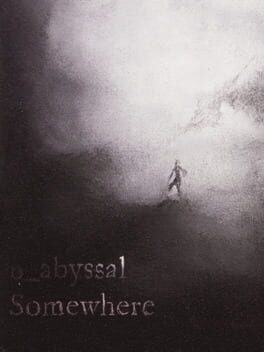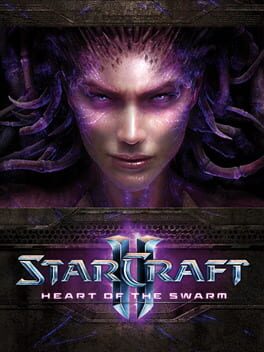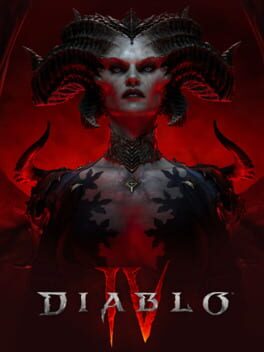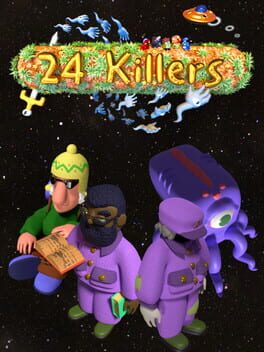2023
had been forever since i played a console fps -- i got ps+ extra so i thought i'd try the middling fps from last year but i couldn't make it past thirty minutes before my eyes got blurry and i got a headache. genuinely, i don't understand how people play console fps with such a low fov, especially a fast paced movement game. i'm sure this game is playable on PC but fuck this was an actually painful experience.
2013
2012
strictly speaking only about reign of chaos' specific campaign: it's not good. somehow in comparison it makes starcraft seem masterclass in both writing and scenario design. most chapters here are simple trods through spaces where if you have overwhelming forces you just generally win. not a single clever mission across all of the races and their respective campaigns. one of my favorite scenario types is the "defend the base for xx minutes" and even here it's boring and tedious because there's just no units or buildings strong enough to make a significant difference. nothing like siege tanks and bunkers around chokeholds. the pathing too can be so busted, particularly evident in a lot of the orc chapters. you'd try to move units but priority order would often just make ones in front stand still. even worse was the escorting the tauren mission where the caravan would just stop moving for whole periods at a time. in general, in combat somehow my melee units would always end up in the back of the group and my ranged on the frontlines and i could not understand why this was happening.
as for the online, life-changing stuff. the things people did with custom games was magic to me growing up with this game. except for dota.
as for the online, life-changing stuff. the things people did with custom games was magic to me growing up with this game. except for dota.
2024
a sublime experience from the great lucas pope. distills the gameplay essence of papers please into a simple, comedic form and it works wonderfully. specifically, the idea of hosting a community event and making sure that the right people attend to get the help they need. once i got into the rhythm of it i found myself giddy to open up the door's hatch and take a look at who was trying to get in. there's a ton of fun events and gimmicks involved and i enjoyed the planning, but i do think there's a tad bit too many events in the mars colony section. the subtle character touches for our 3 eyed martian and his robot companion leaves me wanting more from them. i adored when the robot began dreaming about his teddy bear.
at the end, there's a slight but eloquent touch, to remind people to do this sort of "care" in real life, and i appreciated it.
not going to be a playdate seller by any means, but if you have a playdate, this is an easy recommendation.
at the end, there's a slight but eloquent touch, to remind people to do this sort of "care" in real life, and i appreciated it.
not going to be a playdate seller by any means, but if you have a playdate, this is an easy recommendation.
2024
2018
This review contains spoilers
"Damnation... We'll have to live, there's no way around it now."
despite all the various lacks i felt with regards to its predecessor, banner saga 3 thoughtfully takes what you've been building and implements a whole system around it. iver's caravan heading towards the source of the darkness, all while arberrang, the human capital city, faces destruction both from within and the impending darkness. the accomplishments you've achieved in the form of your caravan, the people you've fought to save, now equate to days left before total destruction. it's a clever give and take: iver's caravan requires days of travel to get to the final objective of the game, if they take too long, you return to the other side of the world to arberrang, and you have to make perhaps costly decisions that give iver's crew more time. if you were too efficient at the game you may never actually return to arberrang, missing out on a bulk of the game's actual content.
the series after all is about embracing failure. the personal failure of eyvind in his grief to allow juno's death, the catalyst for the world to end. what an interesting shape that a game ought to take that to see all the narrative depth of the game, you personally have to fail. very few games can accomplish this on a mechanical level, let alone the whole game, just due to the economy of it all. i think this give and take, as well as a return to form on focusing on the characters, really sends this series off on a high note. all on top of the combat finally paying off on having a huge roster with the waves system, multi-stage battles where you can bring in fresh fighters to fight further waves for rewards.
i do wish there was a deeper epilogue. what a trilogy though! i must note though the amount of bugs and quality of life issues are just, unreal. stoic, please remaster this series, throw in the QoL it desperately needs. cheers.
despite all the various lacks i felt with regards to its predecessor, banner saga 3 thoughtfully takes what you've been building and implements a whole system around it. iver's caravan heading towards the source of the darkness, all while arberrang, the human capital city, faces destruction both from within and the impending darkness. the accomplishments you've achieved in the form of your caravan, the people you've fought to save, now equate to days left before total destruction. it's a clever give and take: iver's caravan requires days of travel to get to the final objective of the game, if they take too long, you return to the other side of the world to arberrang, and you have to make perhaps costly decisions that give iver's crew more time. if you were too efficient at the game you may never actually return to arberrang, missing out on a bulk of the game's actual content.
the series after all is about embracing failure. the personal failure of eyvind in his grief to allow juno's death, the catalyst for the world to end. what an interesting shape that a game ought to take that to see all the narrative depth of the game, you personally have to fail. very few games can accomplish this on a mechanical level, let alone the whole game, just due to the economy of it all. i think this give and take, as well as a return to form on focusing on the characters, really sends this series off on a high note. all on top of the combat finally paying off on having a huge roster with the waves system, multi-stage battles where you can bring in fresh fighters to fight further waves for rewards.
i do wish there was a deeper epilogue. what a trilogy though! i must note though the amount of bugs and quality of life issues are just, unreal. stoic, please remaster this series, throw in the QoL it desperately needs. cheers.
2016
This review contains spoilers
still conflicted on this entry in the trilogy days after completing it. in the grand scheme of things it is ultimately perfunctory; it furthers the groundwork laid in the first game and leads into the excellent finale. however, the banner saga 2 feels like the part in which the character work takes a backseat, all while the tactical combat layer suffers in scope.
it's understandable due to the narrative framing of this game. the end of things is coming. dredge are pouring out of every crevice of a world splintering apart. there's very little time to justify reflection, at least one might think. yet we end up getting new characters in the form of bolverk and rugga which push the needle forward, but never deliver a rich character layer themselves. bolverk almost reaches this with his role, his dreams about damnation at the white tower, about betrayal. in the end he actually attacks juno and iver, possessed by the presence of bellower. but it's precisely in the ambiguity of bolverk's autonomy that later leads to confusion in the trilogy's ending. the final setpiece's accompanying visuals are incredible, eyvind erupting with lightning and bolverk arriving with bellower's body, but the final mini-game encounter between iver and bolverk is tedious and to me embodying of the way that the combat became a bit gimmicky in this part.
in the other caravan, the decision from the first game and how its handled ultimately feels a bit lackluster, and i think that's true even unto the finale. having both played as rook and alette i feel like both games lack a deeper reflection on what has been lost respective to each character. for rook at least we feel the immediate loss, and there's even a dream sequence in which he sees alette and is somewhat able to confront the tragedy of it all. for alette the game focuses on her inheriting the mantle of her father's banner and what it means to lead. but none of this ever feels like it comes to a thematic end, subsumed instead in the total impending annihilation. again, it all makes sense narratively, but your connections to these characters depend on the little moments. like, when rook says that he doesn't want iver to go, simply because he's his best friend. more emphasis goes to rugga's character, a desire to add a layer of political intrigue into the game, and it largely works well enough. yet, is there a huge payoff to rugga's involvement?
and i wonder if a lot of this is a fear of the game feeling like a visual novel. visual novels even to this day are in a weird spot if not outright ignored generally and the time of banner saga's production was no different. the series overall really feels like it wants to deliver most things through combat or caravan UI. it's a curious thing to think about all this time after the fact.
as it all stands, i'm quite critical of this entry, but it's still a fantastic game and there's little in this space that competes.
it's understandable due to the narrative framing of this game. the end of things is coming. dredge are pouring out of every crevice of a world splintering apart. there's very little time to justify reflection, at least one might think. yet we end up getting new characters in the form of bolverk and rugga which push the needle forward, but never deliver a rich character layer themselves. bolverk almost reaches this with his role, his dreams about damnation at the white tower, about betrayal. in the end he actually attacks juno and iver, possessed by the presence of bellower. but it's precisely in the ambiguity of bolverk's autonomy that later leads to confusion in the trilogy's ending. the final setpiece's accompanying visuals are incredible, eyvind erupting with lightning and bolverk arriving with bellower's body, but the final mini-game encounter between iver and bolverk is tedious and to me embodying of the way that the combat became a bit gimmicky in this part.
in the other caravan, the decision from the first game and how its handled ultimately feels a bit lackluster, and i think that's true even unto the finale. having both played as rook and alette i feel like both games lack a deeper reflection on what has been lost respective to each character. for rook at least we feel the immediate loss, and there's even a dream sequence in which he sees alette and is somewhat able to confront the tragedy of it all. for alette the game focuses on her inheriting the mantle of her father's banner and what it means to lead. but none of this ever feels like it comes to a thematic end, subsumed instead in the total impending annihilation. again, it all makes sense narratively, but your connections to these characters depend on the little moments. like, when rook says that he doesn't want iver to go, simply because he's his best friend. more emphasis goes to rugga's character, a desire to add a layer of political intrigue into the game, and it largely works well enough. yet, is there a huge payoff to rugga's involvement?
and i wonder if a lot of this is a fear of the game feeling like a visual novel. visual novels even to this day are in a weird spot if not outright ignored generally and the time of banner saga's production was no different. the series overall really feels like it wants to deliver most things through combat or caravan UI. it's a curious thing to think about all this time after the fact.
as it all stands, i'm quite critical of this entry, but it's still a fantastic game and there's little in this space that competes.
2014
the banner saga is the fantasy epic of our times. visiting it again, my appreciation for everything it achieves grows deeper. games as economy require clever solutions for costly goals, and the format of traveling via a caravan allow the fantasy of a world fully immersed and realized for the player. indeed, the game evokes a long history buried in the deep snow of the north, one of a fragile peace subsiding once again to old war and devastation, and seemingly even further: total annihilation. we see only the edges of this in this game, and the ending haunts of what is to come.
on this playthrough i played the campaign on hard difficulty, and the emphasis on attrition of resources became even greater. the tactical combat layer to the game i think is misunderstood and i think even underrated, but it is understandable. in traditional turn-based tactics game, the meta is undoubtedly to focus a single target, whittling them down one-by-one. the banner saga's combination of health and attack power into one stat dramatically changes this. indeed, there is little point to killing an enemy who has one strength left, or more importantly: an enemy who has less strength than any of your roster. if you waste your resources on inefficient targets, you can easily find yourself at the end being picked off by those you left alone.
the game is richest when you're in this cycle of carefully utilizing your resources. renown can be used to buy supplies which keep the caravan strong and thriving, but also to buy trinkets or direct upgrades for your troops. there are many optional battles too that may reward renown and supplies, but fights can be costly and you can rack up injuries on your troops which dramatically undermine their combat ability. in many tactics games you often maintain a single roster, but on hard difficulty it askes you to be effective with many. most games struggle to have meaningful difficulty, i feel, but banner saga realizes its metaplay quite well and it feels fair all around.
i move now to continue the series with the banner saga 2.
on this playthrough i played the campaign on hard difficulty, and the emphasis on attrition of resources became even greater. the tactical combat layer to the game i think is misunderstood and i think even underrated, but it is understandable. in traditional turn-based tactics game, the meta is undoubtedly to focus a single target, whittling them down one-by-one. the banner saga's combination of health and attack power into one stat dramatically changes this. indeed, there is little point to killing an enemy who has one strength left, or more importantly: an enemy who has less strength than any of your roster. if you waste your resources on inefficient targets, you can easily find yourself at the end being picked off by those you left alone.
the game is richest when you're in this cycle of carefully utilizing your resources. renown can be used to buy supplies which keep the caravan strong and thriving, but also to buy trinkets or direct upgrades for your troops. there are many optional battles too that may reward renown and supplies, but fights can be costly and you can rack up injuries on your troops which dramatically undermine their combat ability. in many tactics games you often maintain a single roster, but on hard difficulty it askes you to be effective with many. most games struggle to have meaningful difficulty, i feel, but banner saga realizes its metaplay quite well and it feels fair all around.
i move now to continue the series with the banner saga 2.
played as part of my new project for 2024: indie game spotlight.
https://www.youtube.com/shorts/rA56gAT7ypQ?feature=share
https://www.youtube.com/shorts/rA56gAT7ypQ?feature=share
2018
2023
i never played Diablo 3. i had no interest after playing the public beta -- at the time i was upset at the change in design philosophy that moved the game drastically away from what i enjoyed about its predecessor. the dark tone and hellish world (albeit problematic in its own right) abandoned for a generic epic fantasy setting, and the combat system that felt severely impaired to make work for what was obvious at the time the in-development console versions of the game. it felt in many ways too, as had happened to Starcraft, a "WoWification" of every element. everything had to scale up for the world's biggest gaming company. everything had to be grandiose, massive, for the sake of player retention.
all these years later a certain return to form has happened, even if i'm largely outside of many contexts that have come and gone. the trailer for Diablo 4 introduced the tone and world that i was missing. besides that, i no longer frankly have a gauge for what is a good loot game and what is not -- i may have tried Path of Exile a few years ago but something was missing. for me it's more a je ne sais quoi quality that i need, and Diablo 4 in its marketing pandered at least to my nostalgia of Diablo 2, so i gave it a shot.
in retrospect, i didn't think i'd find myself finishing the game and finding the narrative experience of the game the better half. the "looter" half here is frankly underwhelming and feels unfinished. upon finishing the campaign you're close if not already ready for WT3 (world tiers: determines difficulty and higher quality loot and exp gain) but at that point you're already getting the type of loot you'll see even in WT4 and up to level 100. for 50 levels you're getting the same loot over and over again and merely refining it -- there's nothing compelling there. i was on the verge of quitting the game at the realization of this but switching to WT4 early has made the game a challenge again, revitalizing it at least until i catch back up.
to claim that the narrative half here is the more compelling piece is not to say it's great or noteworthy, it's more a reflection of how dire blizzard storytelling has gotten. stripping back the stakes, removing the focus on the primal evils for a character driven, smaller scale adventure in this world's space was refreshing. there are absolutely silly narratological beats that arrive at the end (what happens to donan, neyrelle's sudden agency) which give the impression of a rushed production but again the expectations were in the pits of hell.
as a service game, as a game that exists to be replayed daily and at length, it needs a lot of work. a much more compelling endgame state needs to be developed and i don't know if i'll be playing much longer until that arrives. as it stands the grind is brutal which also puts me off starting a new character. i cannot imagine in the game's current state starting another new character with this grind.
if this isn't much of a conclusive review then i feel that reflects the fragmentary nature of Diablo 4 to the heart of what the game is. it is deeply at its core a timekiller and to those who rock with that none of these words really matter in the end.
all these years later a certain return to form has happened, even if i'm largely outside of many contexts that have come and gone. the trailer for Diablo 4 introduced the tone and world that i was missing. besides that, i no longer frankly have a gauge for what is a good loot game and what is not -- i may have tried Path of Exile a few years ago but something was missing. for me it's more a je ne sais quoi quality that i need, and Diablo 4 in its marketing pandered at least to my nostalgia of Diablo 2, so i gave it a shot.
in retrospect, i didn't think i'd find myself finishing the game and finding the narrative experience of the game the better half. the "looter" half here is frankly underwhelming and feels unfinished. upon finishing the campaign you're close if not already ready for WT3 (world tiers: determines difficulty and higher quality loot and exp gain) but at that point you're already getting the type of loot you'll see even in WT4 and up to level 100. for 50 levels you're getting the same loot over and over again and merely refining it -- there's nothing compelling there. i was on the verge of quitting the game at the realization of this but switching to WT4 early has made the game a challenge again, revitalizing it at least until i catch back up.
to claim that the narrative half here is the more compelling piece is not to say it's great or noteworthy, it's more a reflection of how dire blizzard storytelling has gotten. stripping back the stakes, removing the focus on the primal evils for a character driven, smaller scale adventure in this world's space was refreshing. there are absolutely silly narratological beats that arrive at the end (what happens to donan, neyrelle's sudden agency) which give the impression of a rushed production but again the expectations were in the pits of hell.
as a service game, as a game that exists to be replayed daily and at length, it needs a lot of work. a much more compelling endgame state needs to be developed and i don't know if i'll be playing much longer until that arrives. as it stands the grind is brutal which also puts me off starting a new character. i cannot imagine in the game's current state starting another new character with this grind.
if this isn't much of a conclusive review then i feel that reflects the fragmentary nature of Diablo 4 to the heart of what the game is. it is deeply at its core a timekiller and to those who rock with that none of these words really matter in the end.
2023
Resident Evil 4 continues capcom's lineage of reimagining the original series and ends up being the most successful outing yet. hopefully that speaks volumes about the quality here, because the game it's interpolating & iterating on is a canonical classic in the form of games. the original 2005 entry is incredibly iconic and in many ways established a look and feel for games which followed -- you don't get The Last of Us without Resident Evil 4.
and as much as this 2023 adventure of a game shines, it's permanently transfixed to me as a reimagining, a space of possibilities familiar but skewed. i can't separate it from the memories of play of its original, and so it exists as a work in tandem, not independently. my five star i put here is qualified. it's like a sequel, there are contexts in the binding that are inherent.
all of that to say that if i were to write about this game at length, it'd just be referential. everything to say about Resident Evil 4 has been said long ago. to talk about differences furthermore would be too nostalgic. is there nothing left to say then about this 2023 release? not necessarily -- i really want to play it again, like, right away.
and as much as this 2023 adventure of a game shines, it's permanently transfixed to me as a reimagining, a space of possibilities familiar but skewed. i can't separate it from the memories of play of its original, and so it exists as a work in tandem, not independently. my five star i put here is qualified. it's like a sequel, there are contexts in the binding that are inherent.
all of that to say that if i were to write about this game at length, it'd just be referential. everything to say about Resident Evil 4 has been said long ago. to talk about differences furthermore would be too nostalgic. is there nothing left to say then about this 2023 release? not necessarily -- i really want to play it again, like, right away.
2023
send it
24 Killers is a game that grabs you with its title immediately. something i remember dwelling on the moment i had joined the game's discord late 2020. i was enthusiastic to see something like it, due to my own love and adoration for love-de-lic and Moon. the initial teaser of the world let me know that it wasn't a matter of if but when i'd visit it. and 2023.
the weight of Moon as inspiration, as not only work but thematic to be iterated upon, i think could be tremendous. it's a dark game about care, about care that you as the player invest into the game -- and in the end it challenges that very care you cultivated and rebounds it back towards you cruelly: are you giving the world outside these artificial & linear ends the same amount of love?
and that's a lot of weight, for 1997, back when games were a burgeoning medium. it's a game that says these binary constructions can only contain so much -- but your love is infinite. these digital delights have predetermined ends. and that's a thing that no other game has really tried to formalize. Moon exists in a medium where these metatextual moments are often of form but hollow. games don't tend to say things. nier can delete your save. horror games can make you think there is a virus in your pc. even narrative games with multiple endings don't reflect your intent -- endings are content to be seen regardless of canonicity. nothing really is a mirror back at you saying, "... and?"
i won't talk too much about the mechanics of 24 Killers -- it's a rich unfolding of a world a la key and lock and the more you unlock the more locks will be revealed for you, and so on. the narrative core is that you are an echo in this world's narrative: an isolated spirit from the void where there is nothing at all let alone love. your awakening into the world is a violent one -- you're angry clay, mad at moon for sculpting you into the silhouette of man.
moon asks you to cure yourself of a "curse" by helping the residents of the island while moon, in her celestial role, prepares to birth a new universe, as is customary, as is implied is the way of things. moon is at times suspicious and dogmatic but always caring and eventually you realize this space is the continuity and there's no twist or curve upcoming. the 24 killers were soldiers and others on the island who were mutated and in their loneliness alike you as an echo find yourself within them and their friendship materializes you. to be a curse is to be away from others and the bonds that connect people. the bonds therefore break the curse. not really a curse then... but the desire for home that everyone has innately. to be at home. to be loved.
and the husbandman emphasizes this to you, too, if you haven't realized it yet. you see, 24 Killers iterates on moon by saying that things matter even if they are a story. come, let's retell this story once more, and again, ten times and so on. let us make friends once more with these killers. because the care that we invest into these spaces is a reflection back onto us no matter what. and that even if these are stories hardcoded to chips and so on, so what? they make you smile, don't they?
24 Killers is a game that grabs you with its title immediately. something i remember dwelling on the moment i had joined the game's discord late 2020. i was enthusiastic to see something like it, due to my own love and adoration for love-de-lic and Moon. the initial teaser of the world let me know that it wasn't a matter of if but when i'd visit it. and 2023.
the weight of Moon as inspiration, as not only work but thematic to be iterated upon, i think could be tremendous. it's a dark game about care, about care that you as the player invest into the game -- and in the end it challenges that very care you cultivated and rebounds it back towards you cruelly: are you giving the world outside these artificial & linear ends the same amount of love?
and that's a lot of weight, for 1997, back when games were a burgeoning medium. it's a game that says these binary constructions can only contain so much -- but your love is infinite. these digital delights have predetermined ends. and that's a thing that no other game has really tried to formalize. Moon exists in a medium where these metatextual moments are often of form but hollow. games don't tend to say things. nier can delete your save. horror games can make you think there is a virus in your pc. even narrative games with multiple endings don't reflect your intent -- endings are content to be seen regardless of canonicity. nothing really is a mirror back at you saying, "... and?"
i won't talk too much about the mechanics of 24 Killers -- it's a rich unfolding of a world a la key and lock and the more you unlock the more locks will be revealed for you, and so on. the narrative core is that you are an echo in this world's narrative: an isolated spirit from the void where there is nothing at all let alone love. your awakening into the world is a violent one -- you're angry clay, mad at moon for sculpting you into the silhouette of man.
moon asks you to cure yourself of a "curse" by helping the residents of the island while moon, in her celestial role, prepares to birth a new universe, as is customary, as is implied is the way of things. moon is at times suspicious and dogmatic but always caring and eventually you realize this space is the continuity and there's no twist or curve upcoming. the 24 killers were soldiers and others on the island who were mutated and in their loneliness alike you as an echo find yourself within them and their friendship materializes you. to be a curse is to be away from others and the bonds that connect people. the bonds therefore break the curse. not really a curse then... but the desire for home that everyone has innately. to be at home. to be loved.
and the husbandman emphasizes this to you, too, if you haven't realized it yet. you see, 24 Killers iterates on moon by saying that things matter even if they are a story. come, let's retell this story once more, and again, ten times and so on. let us make friends once more with these killers. because the care that we invest into these spaces is a reflection back onto us no matter what. and that even if these are stories hardcoded to chips and so on, so what? they make you smile, don't they?
